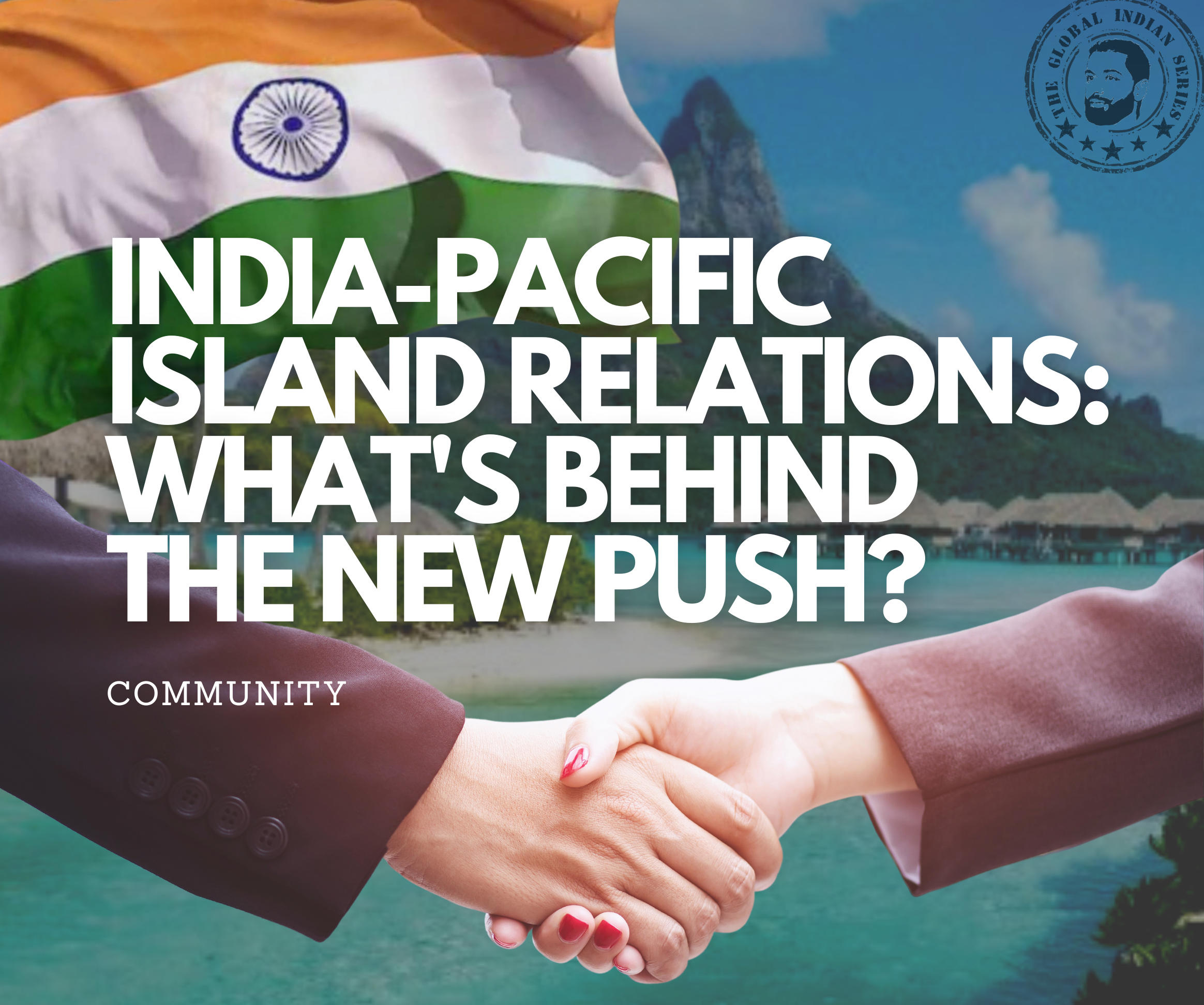India-Pacific Island relations: What’s behind the new push?— India’s connection with the South Pacific Islands has traditionally been fairly limited, despite a sizeable ethnic Indian population in Fiji. However, the relationship is gaining momentum under Prime Minister Modi’s government, and not just with Fiji but across the South Pacific. The region has long figured in India's ‘Look East’ (now ‘Act East’ ) foreign policy, which dates back to the early 1990s, but the emphasis has increased.
Indian President Pranab Mukherjee on his first-ever state visits to PNG and New Zealand
At first blush, the fast-changing maritime domain in Asia — where an increase in geo-political competition is binding the Pacific Islands and Indian Ocean into a single theatre — is the obvious trigger for India’s relatively new interest in these islands. However, there are few pressing reasons for Delhi to engage with the Pacific Islands from a defence point of view. While India carries out training with and for Fiji’s defence staff and engages occasionally in naval exercises, there is nothing that is institutionalised or regular about this defence cooperation.
So, what really does India stand to gain by engaging with the South Pacific islands and vice-versa? The perceived advantages are concentrated in two areas: India’s grand ambition and positioning at international forums.
The first of these relates to India’s desire to expand its footprint. Under Modi, India is rolling out an extensive plan to be a truly global player. Changing geo–politics have increased the region's focus on India and New Delhi is cashing in on the opportunities available. Strategic competition in the Indo–Pacific makes collaboration with India an attractive option. India wants to be more present and visible in world politics and this ambition requires New Delhi to look beyond its traditional friends and partners. It also means that the Indian Navy will have to increase its presence beyond the Indian Ocean. Engaging with the far away Pacific Islands helps demonstrate its willingness to collaborate with the region in a constructive manner.
The Modi government is not only realising the need to re-connect with the South Pacific but also making an effort to set up personal links. President Mukherjee's visit to Papua New Guinea last month, for example, was a first for an Indian President. Modi's visit to Fiji in 2014 was another milestone, one that led to the inaugural Forum for India Pacific Islands Cooperation (FIPIC). India hosted the second FPIC summit in August last year.. Apart from economic and political engagements, India and Fiji have also been able to expand the relationship to space technology (in 2014 Fiji hosted Indian scientists involved in India’s mission to Mars), a growing area of interest for India and one that offers the opportunity for collaboration with other South Pacific Nations.
When it comes to humanitarian aid and disaster relief, the Indian Navy’s reputation as a fast responder in the Indian Ocean is now gaining currency further afield, as evidenced by its supply of aid to Fiji earlier this year in the wake of Cyclone Winston.
Second, India stands to gain support at international forums through its Pacific Islands engagement. The South Pacific islands may be small in population with comparatively under–developed economies and limited resources, but they are sovereign nations recognised by the UN. Closer links and collaboration with these islands can mean 14 more votes at the UN and other international organisations on issues of interest to Delhi, such as reform of the UN Security Council (UNSC). India discussed UNSC reform at FIPIC and issued statements citing support from the island groups.
Such support is a strong incentive for India but South Pacific nations also stand to gain from closer engagement, As the impact of climate change becomes increasingly visible, some of these islands are literally scrambling to stay afloat and India has promised to support and voice their concerns at international forums.
India is not the only power courting these nations. China and, more recently, Russia are also placing a great deal of importance on these islands, China’s work with the South Pacific islands has been impressive; however, India has some advantages as an engagement option. Unlike China, India does not have any aggressive claims or disputes in the maritime domain and, through its adherence to UN arbitration, has demonstrated its respect for international rules and norms. China, in contrast, is viewed as aggressive and expansionist especially in the maritime domain. Pacific nations engaging with China run the risk of being dragged into unresolved — and high–profile — disputes. This was apparent recently when China released a statement citing Fiji’s support in the South China Sea. Fiji was forced to issue a clarification, advising it did not hold such a view.
There is plenty of room to expand on India’s links to this region. Trade between India and the Pacific Islands, for example, is modest and the pace of growth is slow. Co-operative efforts in climate change and education and training could also boost India’s relationship with the islands. However, the pace of progress will depend on the extent to which it is prioritised by all of those concerned.
For now, engaging with Pacific Islands is seen by Delhi as leading to constructive cooperation without controversy. This dovetails nicely with India’s favoured approach to foreign policy overall.
Darshana Baruah
Original article was published on date: May 18, 2016
Media house: the interpreter
Link to original article: https://www.lowyinstitute.org/the-interpreter/beyond-indian-ocean-india-south-pacific-0
Notes: apart from title change, the article has remained the same.
-------------------------------










